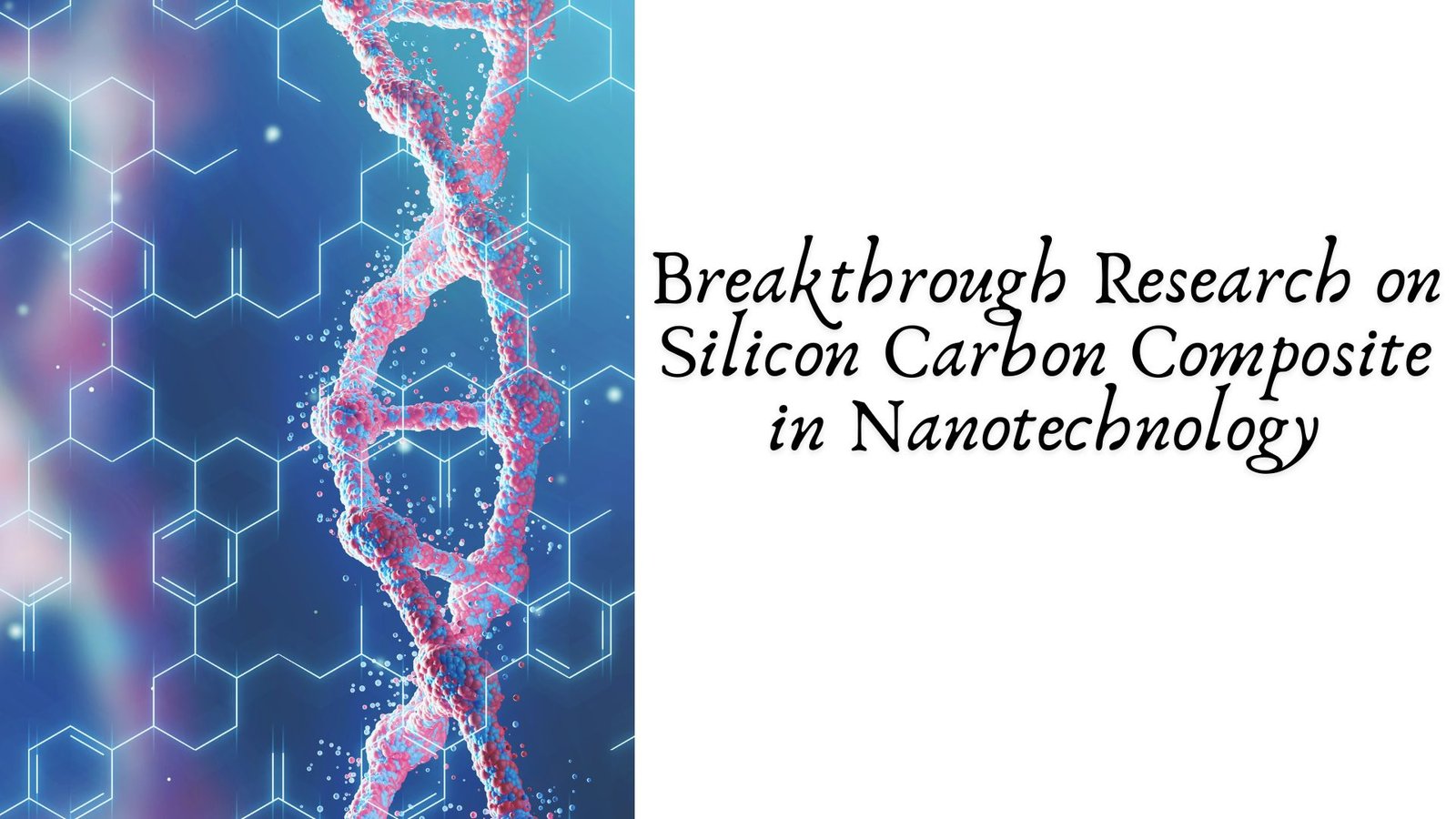Introduction
Silicon carbon composite materials have gained significant attention in the field of nanotechnology due to their unique properties and vast potential applications. Recent research breakthroughs have highlighted their importance in enhancing battery performance, semiconductor devices, and advanced coatings. This article explores the latest developments in silicon carbon composites, their advantages, and their transformative impact on modern technology.
Understanding Silicon Carbon Composite
Silicon carbon composite refers to a hybrid material that combines silicon and carbon at the nanoscale level. The integration of these two elements results in a material with improved mechanical strength, electrical conductivity, and thermal stability. Silicon, known for its high energy storage capability, is widely used in electronic applications, whereas carbon provides structural integrity and conductivity enhancement.
Key Research Breakthroughs
Enhanced Energy Storage in Lithium-Ion Batteries
One of the most notable applications of silicon carbon composites is in lithium-ion batteries. Traditional lithium-ion batteries face limitations due to the volume expansion of silicon during charge and discharge cycles. Recent studies have demonstrated that incorporating carbon structures such as graphene or carbon nanotubes into silicon anodes significantly mitigates this issue. This breakthrough has led to the development of high-capacity batteries with longer lifespans and improved performance.
Advancements in Semiconductor Technology
Silicon carbon composites are also revolutionizing semiconductor technology. Researchers have successfully engineered silicon-carbon nanostructures to enhance electron mobility and thermal conductivity in transistors. This progress is paving the way for faster, more efficient, and durable electronic devices.
Innovations in Coatings and Protective Layers
The integration of silicon carbon composites in coatings has led to materials with exceptional wear resistance, corrosion protection, and thermal stability. Industries such as aerospace, automotive, and medical devices are increasingly adopting these advanced coatings to enhance the longevity and performance of their products.
Breakthroughs in Biomedical Applications
Recent research has explored the use of silicon carbon composites in biomedicine, particularly in drug delivery and biosensors. The biocompatibility and controlled release properties of these materials make them suitable for targeted therapies, improving the efficacy of medical treatments.
Advantages of Silicon Carbon Composites
- High Energy Density: Ideal for next-generation batteries and energy storage systems.
- Thermal and Mechanical Stability: Enhances durability in extreme conditions.
- Improved Conductivity: Increases efficiency in electronic devices and sensors.
- Biocompatibility: Expands potential applications in healthcare and biotechnology.
Future Prospects
The future of silicon carbon composites in nanotechnology is promising. Ongoing research aims to refine synthesis techniques, enhance material properties, and scale production for commercial applications. As industries continue to invest in this cutting-edge material, we can expect groundbreaking advancements in energy storage, electronics, and biomedical technology.
Conclusion
Breakthrough research on silicon carbon composite materials is transforming the landscape of nanotechnology. From revolutionizing batteries and semiconductors to enhancing protective coatings and medical applications, the impact of these materials is profound. As research continues, silicon carbon composites will play a crucial role in the advancement of modern technology, opening doors to more efficient, durable, and sustainable solutions.










Leave a Reply